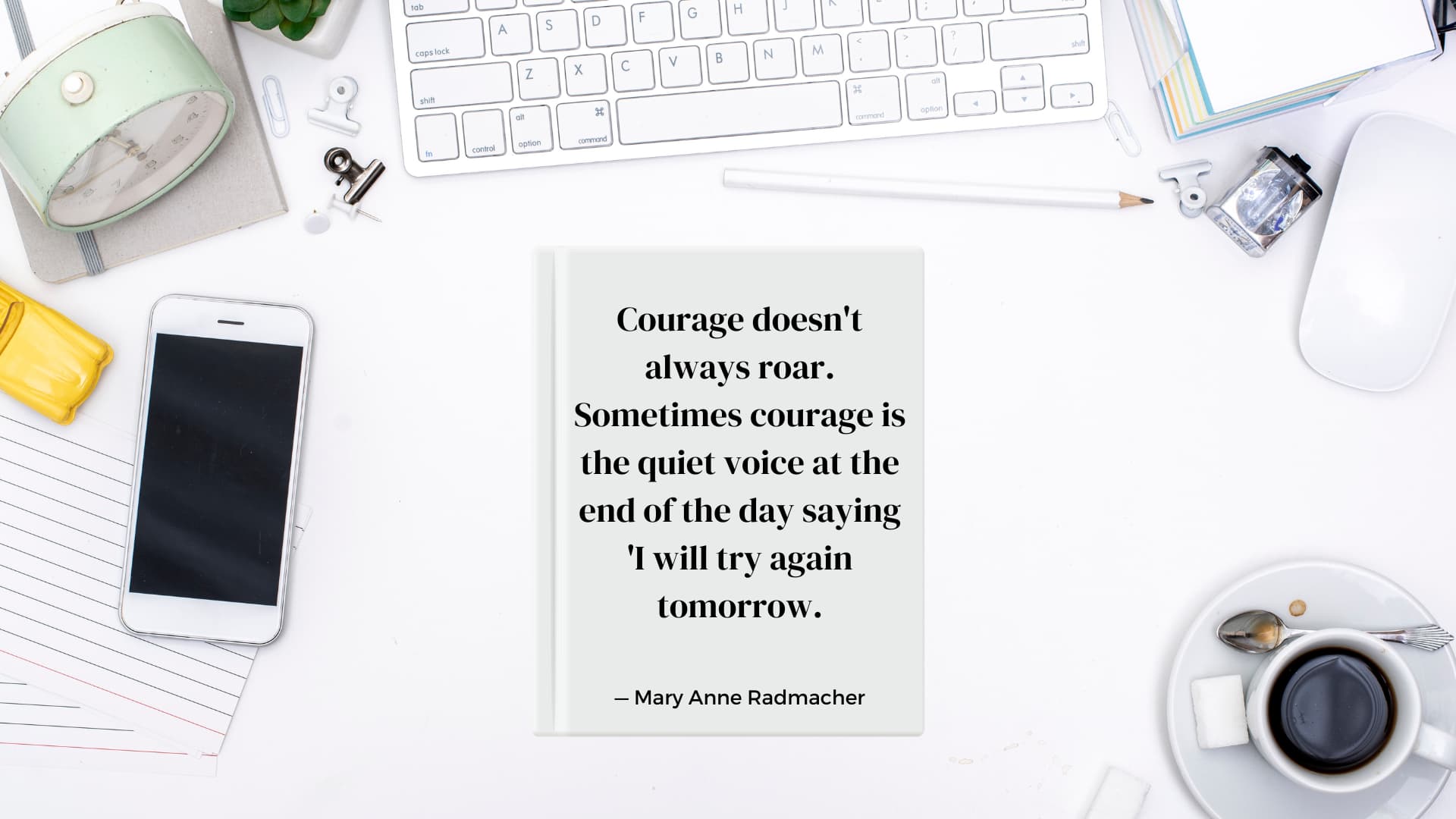Positive Psychology Techniques for Navigating Adversity
Nov 20, 2023
Are you currently facing challenging times in your life, times that seem to test your resilience and shake your core? If so, you're not alone. Life has a way of presenting us with difficulties, and at some point, we all find ourselves navigating stormy seas. If you're in the midst of such a turbulent period, this blog post is for you.
Understanding Positive Psychology and Human Flourishing
Positive psychology, at its core, is the scientific study of what makes life worth living. It delves into the components of human flourishing – those aspects of our existence that go beyond mere survival and pave the way for a life rich in meaning, purpose, and happiness. While it doesn't ignore life's challenges and difficulties, it's primarily concerned with how individuals can thrive and find fulfilment, even in adversity.
In essence, it's about finding the silver lining in the darkest clouds, the hidden strengths within us, and the potential for growth and happiness, regardless of the challenges life throws our way.
The Relevance of Positive Psychology Strategies
But why is positive psychology so relevant during challenging times? When life tests our limits and stretches our patience, it's easy to slip into despair. This is where positive psychology comes to the rescue. Its strategies provide a toolkit for not just surviving but thriving, even when the odds seem stacked against us. By applying these strategies, we can reframe our perspective, build resilience, and find a path forward that allows us to flourish, even amid adversity.
The Importance of Mental Well-Being in Adversity
In the midst of tough times, maintaining mental well-being is not just a luxury; it's a necessity. Challenges, whether personal or global, can take a toll on our mental health, leaving us feeling overwhelmed, anxious, or hopeless. Yet, as we journey through these dark moments, it's crucial to remember that mental well-being is the lighthouse guiding us through the storm.
In this blog post, we will delve into a range of positive psychology strategies designed to help you navigate difficult times. Whether you're seeking ways to build resilience, find moments of happiness, or develop a more optimistic outlook, we're here to explore the tools and techniques that can make a difference in your life. So, let's embark on this journey together and discover the strategies from positive psychology that can help you not just survive but thrive in tough times.

Step 1. Take Care of Your Mind
In the face of adversity, staying hopeful can be an uphill battle. Life's challenges often leave us feeling down and even hopeless. In these moments, our thoughts play a pivotal role. Understanding the significance of taking care of your mind and being cautious of negative and unhelpful thoughts is paramount. Let's begin by exploring why this matters and delve into practical steps to navigate your thoughts during tough times.
Why Taking Care of Your Mind Matters
When you're mired in despair, the state of your mind is of paramount importance. Your thoughts shape your emotions and actions, and if left unchecked, negative and unhelpful thoughts can cast a shadow over your life. Taking care of your mind is vital for several reasons:
Influence on Emotions
Your thoughts influence your emotions. Negative thoughts can lead to feelings of hopelessness, anxiety, and depression. Positive thoughts, on the other hand, can generate feelings of optimism and well-being.
Behavioural Impact
Your thoughts also influence your behaviour. Negative thought patterns can lead to self-destructive behaviours, while positive thoughts can promote actions that lead to improvement and resilience.
Self-Fulfilling Prophecies
What you think often becomes your reality. If you constantly expect the worst, you're more likely to find evidence to support that belief. Changing your thought patterns can alter the course of your life.
Now, let's explore some practical strategies to take care of your mind and manage negative thoughts during tough times:
1. Self-Awareness Lays the Foundation for Change
The first step in managing negative and unhelpful thoughts is self-awareness. Pay attention to your inner dialogue. Are you engaged in self-criticism, catastrophising, or constantly anticipating the worst possible outcome? Self-awareness is the bedrock upon which change is built.
Recognising and acknowledging your negative thoughts creates a space for introspection and transformation. It's an opportunity to step back and ask, "Is this thought serving me? Is it based on facts or assumptions? Is there a more positive interpretation of the situation?"

2. Know Your Trigger
Understanding what triggers your negative and unhelpful thoughts is another crucial aspect of self-awareness. Triggers can vary from person to person. Is it specific situations, certain people, or particular memories that tend to set off these thoughts? By identifying your triggers, you can prepare to respond more effectively and develop strategies for managing them.
3. Watch Out for 'What If' Thinking
A chronic case of the "What Ifs" is often the source of much unnecessary anxiety and despair. Constantly dwelling on what might have happened or the consequences of your actions can paralyse you with regret. The truth is, we can't change the past, instead of getting entangled in the "What Ifs," focus on what you can do now to improve your situation.
4. Avoid Catastrophising
Catastrophising is another cognitive distortion that can worsen negative thinking. It involves blowing situations out of proportion or expecting bleak outcomes in the future. This pessimistic attitude is often associated with negative consequences, including increased distress and physical symptoms. Research shows that catastrophising is linked to a range of negative outcomes, from emotional distress to poorer treatment results.
In these moments, it's important to remind yourself that your mind tends to magnify difficulties. Try to look at the situation more objectively and consider more balanced perspectives.
5. Limit Negative Inputs
Our environment and the information we consume significantly impact our thoughts and emotions. If you find that watching or reading the news contributes to your negative thoughts, consider limiting your exposure. Opt for content that uplifts and inspires you.
Remember, the mind is like a sponge, soaking up the information it's exposed to. Be selective about the information you allow in, ensuring that it nurtures your well-being rather than eroding it.
6. Forgiveness and Be Compassionate to Self
Forgiveness, often a challenging but liberating practice, is a fundamental component of positive psychology. Holding onto grudges or self-blame can be a heavy burden during difficult times. The act of forgiveness, both toward others and yourself, can release this weight.
Forgiving others does not mean condoning their actions but rather freeing yourself from the negative emotions associated with the transgression. Self-compassion, on the other hand, involves treating yourself with kindness and understanding, and acknowledging that it's okay to have difficult moments. Practicing self-compassion is vital during tough times, as it helps you navigate the storm with greater emotional resilience.
In challenging times, the battle often begins within your mind. By fostering self-awareness, difficult negative thoughts, and curating a positive information diet, you can take control of your mental landscape and discover the resilience and hope that is within you. Stay tuned for the continuation of our exploration into strategies from positive psychology for tough times.

Step 2: Learn When to Approach a Situation With Awareness
In the midst of challenging times, understanding when to approach a situation with acceptance, courage, and wisdom can make all the difference. Life often throws us into situations that test our resilience and emotional strength. However, positive psychology equips us with powerful tools to navigate these turbulent waters. In this segment, we will explore the concept of approaching adversity with acceptance, courage, and wisdom—a crucial strategy for maintaining hope during tough times.
1. Approaching with Acceptance
Acceptance is a cornerstone of positive psychology. It doesn't mean surrendering to difficulties or giving up; rather, it's about acknowledging the reality of a situation without resistance. When we fight against the inevitable or dwell on what could have been, we exacerbate our suffering.
In tough times, practising acceptance means recognising that certain aspects of the situation are beyond your control. This doesn't mean you're helpless, but it does mean that dwelling on what you can't change only adds to your burden. By accepting reality, you free up mental and emotional energy to focus on what you can control.
2. Approaching with Courage
Courage is another key component of facing adversity. It's the strength to confront challenges, even when it feels daunting. Courage isn't the absence of fear, but the determination to move forward despite it.
During tough times, summoning your courage means taking action, no matter how small it may seem. It might involve seeking help, making a difficult decision, or simply getting out of bed on a particularly gloomy day. Courage reminds you that you have the inner strength to persevere.
3. Approaching with Wisdom
Wisdom is the art of making sound decisions, even in the face of uncertainty. It involves considering the long-term consequences of your actions and thinking beyond the immediate emotions. Wisdom in tough times means making choices that align with your values and well-being.
When you approach a situation with wisdom, you take a step back from the turmoil and evaluate your options objectively. This doesn't mean ignoring your emotions but rather not letting them dictate your actions. Wisdom reminds you to prioritise your long-term well-being and happiness.
The Balance of Acceptance, Courage, and Wisdom
Balancing acceptance, courage, and wisdom is the key to navigating tough times effectively. Acceptance allows you to acknowledge the reality of the situation, freeing you from the weight of resistance. Courage empowers you to take action, no matter how small, to move forward. Wisdom guides your actions and choices, ensuring they align with your values and goals.
In practice, this might mean accepting the loss of a job, summoning the courage to seek new opportunities, and using wisdom to choose a career path that resonates with your passions and aspirations.

Step 3. Manage Your Mind
One of the most effective strategies from positive psychology is to reframe negative thoughts. Our minds are like storytellers, and the tales they weave can often take a dark turn during difficult times. Self-doubt, self-criticism, and a focus on obstacles can dominate our inner dialogue. Reframing means consciously shifting your perspective from a negative one to a positive or more balanced one.
For instance, instead of thinking, "I can't handle this," reframe it to, "This is a challenge, but I can learn and grow from it." This shift in perspective not only boosts your mental well-being but also changes the way you approach challenges. It encourages resilience and a "can-do" attitude. By shifting your perspective, you can transform a problem into an opportunity for growth.
1. See the Silver Lining
Sometimes, amid the darkest clouds, there's a silver lining. It's the ability to find something positive or hopeful in a difficult situation. Even when facing adversity, there may be aspects that, upon closer examination, reveal a glimmer of positivity. It could be an opportunity for personal growth, a strengthened bond with loved ones, or a new direction in life.
Positive psychology teaches us to seek and focus on the positive aspects of challenging situations. Adversity can lead to unexpected opportunities and personal development. Rather than dwelling on what you've lost or the difficulties you're facing, try to identify the silver linings. Ask yourself what lessons you can learn, what new opportunities might arise, or how this experience might lead to personal growth. Cultivating a habit of finding the silver lining can turn tough times into transformative experiences.
2. Believe That Things Are Happening for You, Not to You
This shift in mindset can be truly transformative. Instead of seeing adversity as something that's befallen you, reframe it as an event that's happening for you. This perspective can help you find purpose and meaning in challenging times.
When you believe that life's challenges are there to help you grow, you're more likely to approach them with courage and a sense of curiosity. You become an active participant in your own growth and transformation rather than a passive victim of circumstances.
3. Focus on Growth and Lessons
To create a stronger and more resilient version of yourself, direct your focus toward growth and lessons. Tough times often serve as catalysts for personal transformation. Instead of allowing adversity to break you, let it mold you into a more resilient and empowered individual.
Identify the lessons you can extract from your experiences, and determine how they can shape your future decisions. Establish actionable steps to apply what you've learned to your life. Each challenging moment becomes a stepping stone to a stronger, more resilient you.

Step 4: Creating Your Beautiful Future with Positive Psychology
In our journey through the strategies from positive psychology for tough times, we've discovered that staying hopeful and resilient is not only possible but also within our grasp. Now, as we continue on this path of self-discovery and growth, it's time to translate these insights into actionable steps that lead to a brighter future. From using positive mantras to practising healthy life habits, let's delve into the practical actions you can take to create the beautiful future you deserve.
1. Use Positive Mantras and Constructive Affirmations
Positive mantras and affirmations are like compasses that point you towards the direction you want to go. They help reframe your thoughts, shift your mindset, and keep you focused on a positive path. To move forward and create a beautiful future, start by identifying the areas of your life that need positivity and create mantras that reflect your goals and desires. For example, "I am resilient," "I am capable," or "I am the architect of my future."
Create a list
Compile a list of positive mantras and affirmations that resonate with you. These should be statements that empower and uplift you.
Daily practice
Dedicate a few minutes each day to repeat these mantras and affirmations. Visualisation can make the practice even more effective.
Application
Whenever you encounter adversity or negative thoughts, turn to your mantras and affirmations. Let them be your anchor in turbulent waters, guiding you towards hope and resilience.
2. Find Things to Look Forward To
Creating a beautiful future begins with having things to look forward to. Identify things to look forward to, no matter how small they may seem. These could be daily pleasures or significant long-term goals. Having something to anticipate can infuse your life with positivity and motivation. Start by identifying activities or milestones that bring excitement into your life.
Create a List of Things That Excite You
Make a list of things, both big and small, that you're looking forward to in the short and long term.
Create a Vision Board
Construct a vision board that represents your future aspirations. Include images, words, or symbols that remind you of the things you're looking forward to. Place it where you'll see it daily.
Set Milestones
Break down your vision into smaller milestones. These could be personal or professional achievements that move you closer to your goals. Tracking your progress is essential for maintaining hope.

3. Work on Meaningful Goals
Meaningful goals give you a sense of purpose and direction, even in the face of adversity. Identify objectives that align with your values and aspirations. This can be related to your personal development, career, relationships, or any other area of life. Working towards these goals can instil hope, determination, and a clear vision of a better future.
Define Your Goals
Identify the goals that truly resonate with your values and aspirations. These could be personal, professional, or a blend of both.
Break Them Down
Once you have your goals in mind, break them down into smaller, actionable steps. This makes them more manageable and allows you to track your progress.
Set Deadlines
Assign realistic deadlines to each step. This creates a sense of urgency and accountability.
Celebrate Achievements
Celebrate each milestone you reach on the way to your goals. These celebrations keep you motivated and reinforce the sense of accomplishment.
4. Do the Things That Bring You Joy
To create a beautiful future, it's essential to make time for activities that bring you joy. These moments of happiness serve as building blocks for a brighter life. Whether it's a hobby, spending quality time with loved ones, or simply enjoying the simple pleasures of life, prioritise activities that make your heart sing.
Identify Your Joy Sources
Make a list of activities or hobbies that genuinely bring you joy. This could be anything from painting to hiking, reading, or spending time with loved ones.
Schedule Joy Time
Commit to dedicating time to these activities regularly. Set aside moments in your day or week to immerse yourself in what brings you joy.
Expand Your Joy
Don't limit yourself. Be open to trying new things that might bring you happiness. Exploring new hobbies and interests is a fantastic way to boost your mental and emotional well-being during tough times. It offers a break from the routine, introduces you to novel experiences, and broadens your horizons. Many hobbies and interests come with built-in communities of like-minded individuals. Engaging in group activities can help you build new social connections.

5. Practice Healthy Habits
Physical well-being is closely linked to mental well-being. A strong, healthy body can provide you with the energy and resilience needed to take positive steps forward.
Set Up Your Sleep Hygiene
Establish a consistent sleep schedule. Go to bed and wake up at the same time every day, even on weekends. This helps regulate your body's internal clock. Aim to sleep for 7-9 hours of quality sleep every night.
Eat Healthy
Eating a balanced and nutritious diet is crucial for overall well-being. Strive for a variety of foods in each meal, including lean proteins, whole grains, plenty of fruits and vegetables, and healthy fats. Reduce your consumption of processed and fast foods, which are often high in unhealthy fats, sugars, and sodium. Drink plenty of water throughout the day to stay properly hydrated.
Exercise
Find activities you enjoy, whether it's walking, jogging, swimming, dancing, or sports. Enjoyment increases the likelihood of consistency. Start slowly if you're new to exercise, and gradually increase the intensity and duration of your workouts. Find a workout buddy or join a fitness class to stay motivated and accountable.
Prioritise Mental Health
Incorporate mindfulness and stress-reduction practices into your daily life, such as meditation and deep breathing exercises.
Navigating Tough Times with Positive Psychology
In the quest to find hope and resilience during life's most challenging moments, the strategies from positive psychology have illuminated our path. From harnessing the power of your mind to cultivating acceptance, courage, and wisdom and practising mind management techniques, these tools have the potential to transform our lives. As we conclude this blog post, let's reflect on the key takeaways and encourage you to actively incorporate these strategies into your daily lives.
1. The Power of Your Mind
Our thoughts are the architects of our reality. By managing our thoughts and nurturing a positive mindset, we can shape a future filled with optimism and resilience.
2. Learn When to Approach with Acceptance, Courage, and Wisdom
Understanding the balance between acceptance, courage, and wisdom is pivotal in dealing with adversity. Acceptance allows you to release the burden of resistance, courage empowers you to act despite fear, and wisdom guides you toward well-informed choices.
3. Mind Management Techniques
Managing your mind is an art worth mastering. From reframing negative thoughts to seeking silver linings, these techniques help you find positivity in adversity. They empower you to shift your perspective, turning challenges into stepping stones for growth.
4. Creating a Beautiful Future with Positive Psychology
This journey is not just about enduring tough times; it's about actively creating a future that brims with hope, resilience, and vitality. From cultivating joy, pursuing meaningful goals, and adopting healthy life habits, positive psychology offers actionable steps that are the building blocks of a radiant, fulfilling future.
5. Practice Healthy Habits
Taking care of your physical and mental well-being by ensuring you get the right amount of sleep, nourishing your body with healthy foods, and staying active through regular exercise.

Final Thoughts
I encourage you to integrate these strategies into your life. Remember that tough times are not permanent, and they are transient. Your strength and resilience are enduring. Tough times may cast shadows. You, on the other hand, are resilient, strong, and capable of rising above adversity. Tough times don't last, but tough people do. Your ability to persevere, adapt, and find hope is a testament to your inner fortitude.
You are experiencing bad days, and they don't define you. Design your own pathway. Take it one step at a time, or maybe one day at a time. The strategies we've explored are not mere concepts but practical actions that can be woven into your daily life. By incorporating them, you'll find yourself not merely surviving but thriving.
As you embark on this journey, hold on to hope, persevere with courage, and let wisdom be your compass. Believe that the best is yet to come. You have the power to shape your future, and it's bound to be beautiful, full of hope, strength, and lasting happiness.
Every step you take, every thought you transform, and every challenge you face is a stepping stone towards a beautiful future. So, with hope in your heart and a resilient spirit, move forward. The beauty of the journey is all yours to create.
With love,

The content, products and services of this website are not meant to substitute any advice provided by mental health and medical professionals. If you suspect that you're facing mental-health-related problems, you're strongly encouraged to seek professional help.




